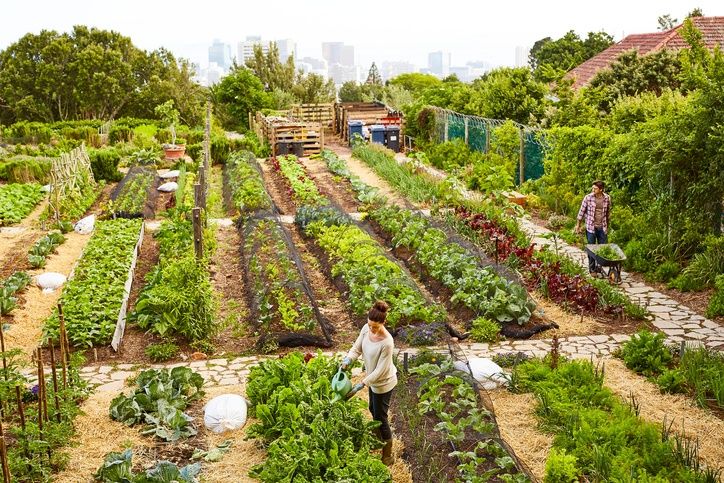In a world that often feels chaotic and fast-paced, finding solace and peace in the simple joys of life is more important than ever. Gardening, an age-old practice of nurturing plants and connecting with nature, has emerged as a powerful remedy for improving it. Whether you’re cultivating a small balcony garden, tending to a backyard oasis, or growing herbs on a windowsill, gardening offers countless benefits for the mind and soul.
This blog explores the profound ways gardening enhances it, diving into its therapeutic impact, the science behind it, and practical tips to make gardening a rewarding experience.
Why Gardening is Good for Mental Health

Gardening isn’t just about growing plants; it’s about cultivating well-being. The act of planting seeds, nurturing growth, and watching nature flourish fosters a sense of accomplishment, calm, and joy—all of which contribute positively to it.
1. Stress Reduction
The rhythmic, hands-on nature of gardening is a natural stress reliever. Digging in the soil, planting seeds, and watering plants help shift focus away from worries, reducing cortisol levels (the stress hormone) and promoting relaxation. This immersion in nature provides an antidote to the pressures of modern life, significantly benefiting it.
2. Boosts Mood and Happiness
Gardening triggers the release of serotonin, a hormone associated with feelings of happiness and well-being. The simple act of spending time outdoors, surrounded by greenery, and engaging with plants has been shown to alleviate symptoms of depression and elevate mood—key factors in maintaining good mental health.
3. Mindfulness and Presence
Tending to plants requires focus and attention, drawing you into the present moment. This mindfulness aspect of gardening helps quiet a racing mind, reduces anxiety, and encourages a state of calm, contributing positively to mental health.
4. A Sense of Purpose
For many, gardening provides a sense of purpose. Watching plants grow under your care fosters feelings of achievement and responsibility. This sense of purpose is especially valuable for individuals struggling with their mental health, as it reminds them of their ability to create and nurture.
5. Physical Activity and Its Mental Health Benefits
Gardening is a form of physical activity, and exercise is well-known for its positive impact on mental health. Tasks like digging, planting, weeding, and watering keep you moving, improving fitness while releasing endorphins that enhance mood.
The Science Behind Gardening and Mental Health

Research consistently highlights the connection between gardening and improved mental health. A study published in the Journal of Health Psychology found that gardening led to significant reductions in stress levels compared to other leisure activities. Additionally, exposure to soil microbes, such as Mycobacterium vaccae, has been shown to boost serotonin production, acting as a natural antidepressant.
Specific Mental Health Conditions Gardening Can Help With
1. Anxiety
Gardening’s repetitive tasks and focus on nurturing growth can soothe anxious minds. The calming environment of a garden also reduces overstimulation, creating a safe space to relax.
2. Depression
For individuals battling depression, gardening offers a sense of hope and accomplishment. Witnessing the life cycle of plants reminds gardeners of resilience and renewal, fostering positive emotions.
3. Post-Traumatic Stress Disorder (PTSD)
Gardening provides grounding for individuals with PTSD. Its tactile, sensory-rich nature helps individuals reconnect with the present, reducing feelings of detachment and unease.
4. ADHD
For those with ADHD, gardening offers an outlet for energy and a way to channel focus. It can also help improve patience and attention to detail.
5. General Stress and Burnout
In a busy world, the restorative power of gardening is invaluable for combating burnout. The act of nurturing plants promotes relaxation and revitalizes mental energy.
Gardening Tips to Enhance Mental Health
1. Start Small
If you’re new to gardening, start with something manageable, like a small herb garden or a few potted plants. Even a modest effort can yield significant benefits for mental health.
2. Choose Plants You Love
Select plants that bring you joy, whether they’re vibrant flowers, fragrant herbs, or edible vegetables. The visual and sensory satisfaction will amplify the positive impact on your mental health.
3. Create a Routine
Establishing a gardening routine can provide structure and stability, which are beneficial for mental health. Consistent care for plants fosters a sense of responsibility and rhythm.
4. Get Creative
Experiment with garden design, plant arrangements, or DIY decorations. Creativity in gardening adds a personal touch and enhances the therapeutic experience for your mental health.
5. Spend Time Outdoors
Whenever possible, garden outdoors to maximize exposure to sunlight and fresh air. Natural light boosts vitamin D levels, which are essential for maintaining good mental health.
Gardening for All Ages
1. Children
Introducing children to gardening helps build their connection with nature and enhances their emotional well-being. It teaches patience, responsibility, and mindfulness—habits that support long-term mental health.
2. Adults
For adults with demanding schedules, gardening provides a much-needed escape. It acts as a stress-relief outlet and an opportunity to disconnect from screens and reconnect with oneself, improving mental health.
3. Seniors
For seniors, gardening offers gentle physical activity, mental stimulation, and a sense of accomplishment. It combats loneliness and promotes a sense of purpose, both of which are crucial for good mental health.
Gardening Styles to Suit Every Mental Health Need
1. Container Gardening
Perfect for urban dwellers or those with limited space, container gardening brings greenery into any setting, creating a calming environment conducive to better mental health.
2. Vegetable Gardening
Growing your own food not only provides fresh produce but also instills a sense of pride and self-sufficiency, enhancing mental health.
3. Flower Gardens
Colorful blooms uplift the spirit, creating a vibrant and joyful atmosphere that’s beneficial for mental health.
4. Zen Gardens
Inspired by Japanese culture, Zen gardens focus on simplicity and mindfulness. Raking patterns into sand or gravel provides a meditative practice that supports mental health.
5. Therapeutic Gardens
Designed with relaxation and healing in mind, therapeutic gardens often include sensory plants, water features, and seating areas to enhance mental health.
The Role of Community Gardening in Mental Health
Community gardens bring people together, fostering a sense of belonging and social connection. Working collaboratively on gardening projects provides opportunities to make new friends, share knowledge, and combat feelings of isolation—all of which are vital for maintaining good mental health.
Gardening During Challenging Times
Even during difficult periods, such as the COVID-19 pandemic, gardening proved to be a sanctuary for many. As a coping mechanism, it offered a sense of normalcy and hope, helping individuals manage stress and protect their mental health.
Conclusion
Gardening is more than just a hobby; it’s a powerful tool for nurturing the mind and soul. The benefits of gardening for mental health are profound, spanning stress reduction, mood enhancement, mindfulness, and a sense of purpose. No matter your age, space, or experience level, gardening offers a tangible way to reconnect with nature, foster resilience, and cultivate happiness.
Whether you’re planting flowers, vegetables, or herbs, each moment spent in the garden contributes to better mental health. So grab a trowel, dig into the soil, and let the therapeutic magic of gardening transform your life.


Leave a Reply to The Role of Nutrition in Enhancing Mental Health Cancel reply